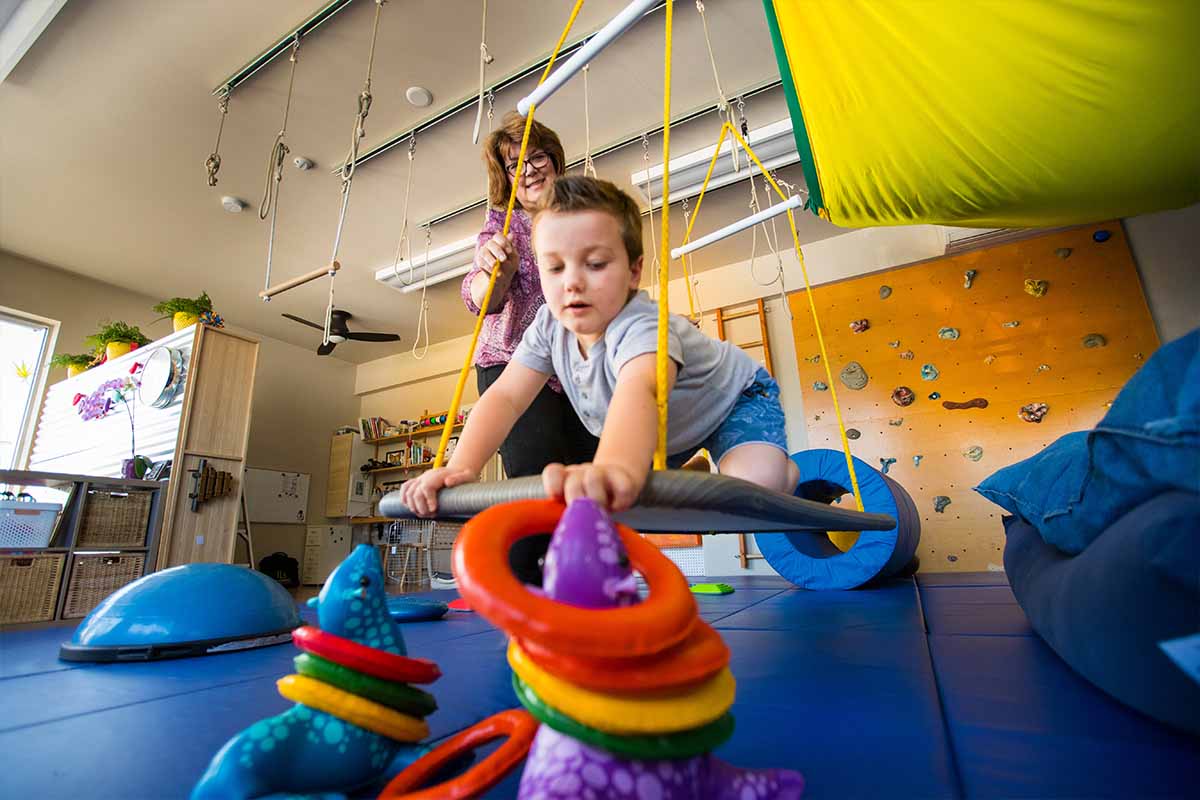
Where state-of-the-art tools meet innovation, the University of St. Augustine for Health Sciences (USAHS) is motivated by a strong belief in the power of creativity to prepare future healthcare professionals.
Elisabeth McGee, PhD, DPT, MOT, MTC, CHSE, Senior Director of Clinical Learning and Innovation at USAHS, shares her insights on The Nurse Keith Show. She uncovers how USAHS shapes tomorrow’s healthcare landscape through advanced teaching methods and technology integration.
Listen to the podcast episode here:
As an occupational therapist (OT) and physical therapist (PT) with over 20 years of clinical and academic experience, Dr. McGee believes in a patient-centered approach to creative problem-solving.
“The power of innovation is everything. When it comes to the future of healthcare, I believe it’s about rising to the challenge and taking measured risks to solve problems, drive progress and enhance outcomes,” Dr. McGee advocates.
A dynamic education model
USAHS incorporates emerging technologies and modern learning methods. Its programs equip students with the skills and confidence to be exceptional clinicians and innovative leaders.
“At USAHS, innovation is a critical piece of our DNA, mission statement and vision. We’re committed to teaching using cutting-edge technologies and learning methods to prepare students for the healthcare of today and the future,” Dr. McGee asserts.
One of the cornerstones of USAHS’ approach is its vibrant learning model, which is both flexible and comprehensive. This model enables the development of a custom curriculum influenced by content experts from various fields. “Our students benefit from a highly interactive and flexible learning environment, with access to a wealth of digital resources and expert guidance,” Dr. McGee explains.
Hands-on learning and real-world experience
USAHS’ Centers for Innovative Clinical Practice (CICPs) are simulation centers spread across five campuses, primarily serving graduate programs while fostering interprofessional collaboration.
The CICPs allow students to practice in simulated clinical environments with standardized patients and the latest equipment to gain confidence and competence before transitioning into real clinical settings. Dr. McGee notes, “Some of their simulation experience is complemented by artificial intelligence (AI) and virtual simulations, allowing students to practice clinical skills remotely and safely.”
Another distinctive feature of USAHS’ program is its pro bono clinical experiences, a key differentiator. These clinical experiences, offered on-site and through telehealth, allow students to collaborate with peers and faculty while serving community members.
“Our pro bono clinical experiences provide students with invaluable real-world experience, helping them develop practical skills and learn how to integrate technology like electronic medical records and telehealth platforms,” Dr. McGee says.


Specialized skills and micro-credentialing
The emphasis on technology extends to innovative tools such as wearables for remote monitoring and assessment and AI applications for home enhancement.
“Our students learn how to integrate these technologies into patient care, from using wearables for fall prevention to teaching patients how to use AI to adapt their homes for aging in place,” Dr. McGee explains.
USAHS offers Innovation and Creation Hubs on each campus that dedicate space and resources for student problem solving and design thinking. The hubs feature 3D printers, virtual and augmented reality and more. Students are encouraged to explore patient needs – gaps in healthcare – and build solutions. They ideate, develop prototypes and refine their designs based on feedback. This hub fosters creative thinking and innovation, essential traits for modern healthcare practitioners.
In response to the growing reliance on technology in healthcare, USAHS offers various micro-credentials that equip students with specialized skills. In addition to the telehealth micro-credential, this program is expanding to offer micro-credentials in areas like 3D printing, interprofessional collaboration, AI literacy and specialized clinical practice areas.
Dr. McGee explains how micro-credentialing is a game-changer and grants students additional capabilities that set them apart in the job market. Dr McGee explains, “The program allows students and faculty to upskill in areas they want to advance in.”
USAHS recently launched the Journal of Innovation in Health Sciences Education (JIHSE), an open-access, peer-reviewed journal highlighting transformational educational approaches, emerging instructional technologies and outcome-focused teaching and learning innovation in health sciences education.
“Our journal aims to drive innovative practices in health sciences education, offering evidence-based guidance on best practices and strategies,” Dr. McGee shares.


Preparing future healthcare leaders
USAHS is at the forefront of healthcare education, integrating advanced technology and innovative teaching methods to prepare the next generation of healthcare professionals.
The University’s unique approach, combining high-touch, high-tech learning environments, specialized skill pathways and extensive immersive experiences, ensures graduates are well-equipped to lead and innovate in their respective fields.
Then, the creative magic happens. “We build an infrastructure that’s a bit unique – it gives students the freedom to take things to a different level,” Dr. McGee explains, “This opens up a world of possibility when students have space to think about other ways of doing things.”
She says the University’s ultimate goal is to train innovative healthcare practitioners ready to challenge themselves and think critically and creatively.
“Our graduates come out with unique skill sets that have elements of design thinking – they’re critical thinkers. This allows them to be evidence-informed decision-makers, healthcare problem solvers and a positive force for change within the healthcare industry,” Dr. McGee expresses.


Elisabeth McGee, PhD, DPT, MOT, MTC, CHSE, Senior Director of Clinical Learning and Innovation at USAHS
Ready to launch your healthcare career? With an employment rate above 90%, USAHS equips its students to lead and succeed in the ever-evolving healthcare landscape.
Dr. McGee says, “At our institution, innovation drives the future of healthcare. We decided to be in the driver’s seat of what healthcare education should be.”
USAHS prides itself on offering quality, accessible education, with financial aid and dedicated career services support. USAHS also offers Innovation Pilot Grants to faculty and staff, with student participation, encouraging interprofessional teams to apply. These grants invite individuals to identify healthcare needs and propose creative solutions through new technologies or innovative strategies, such as apps or AI developments.
Listen to Dr. McGee’s conversation on The Nurse Keith Show.









